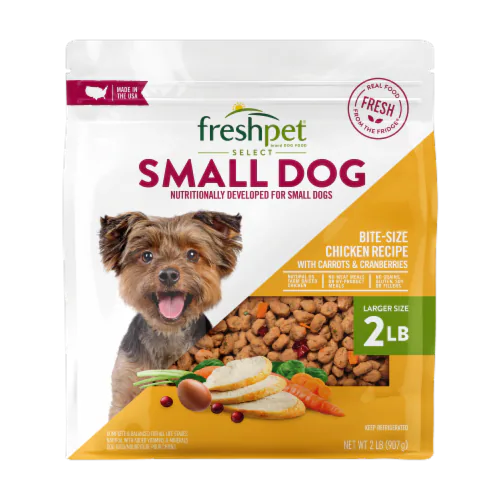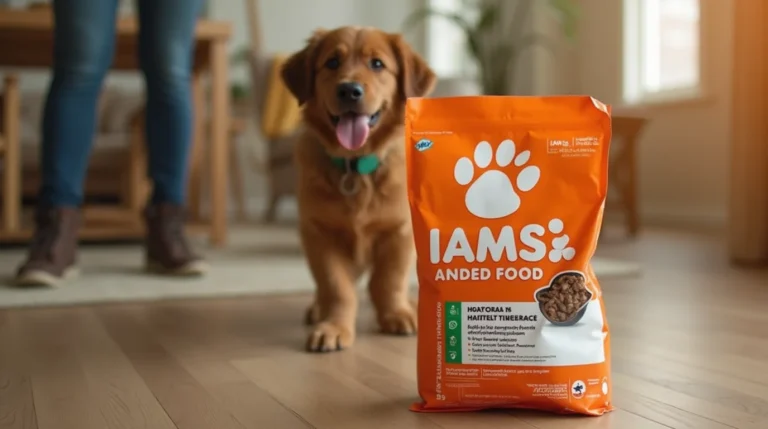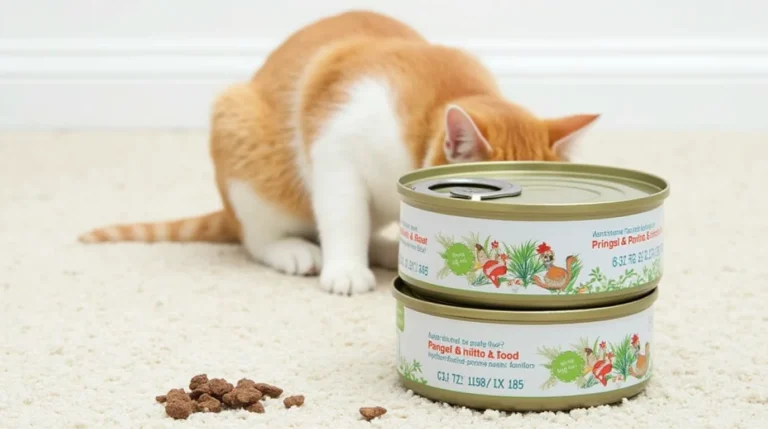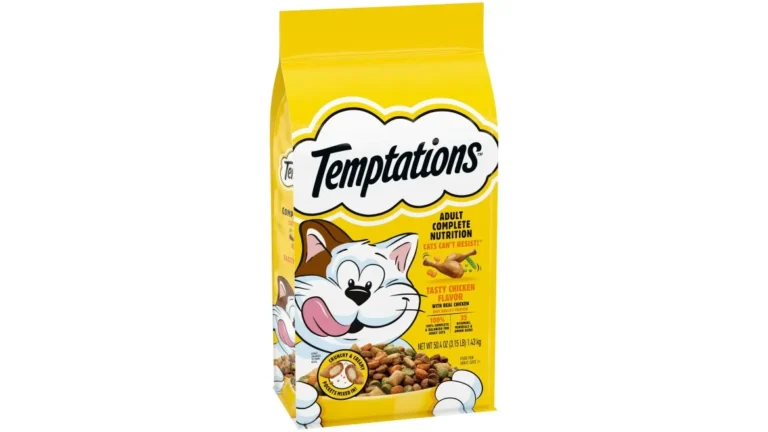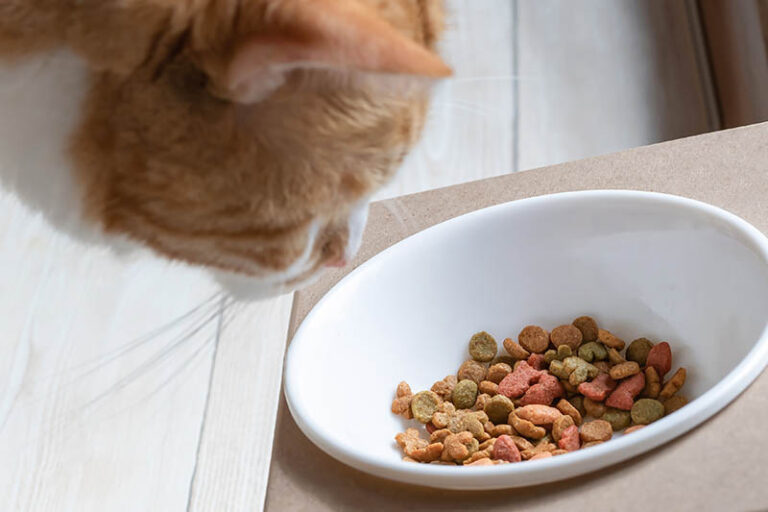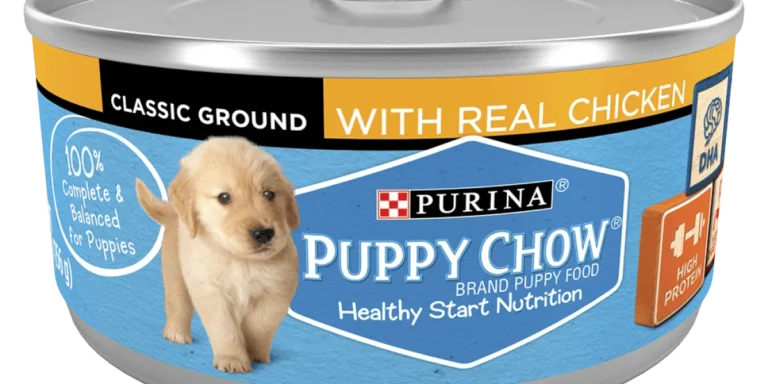Feeding your small dog the right food is more than just a daily routine—it’s the foundation of their health and happiness. With their unique dietary needs, small breeds benefit from small dog food specially designed to deliver high-quality nutrition in the right portions.
This guide dives into the essentials of choosing the best food for your tiny companion, focusing on health, ethical sourcing, and tailored formulas.
Why Nutrition Matters for Small Dogs
Small dogs have fast metabolisms but tiny stomachs, meaning their meals need to pack a nutritional punch without overloading them. Small dog food is designed to provide dense nutrition in small portions, which helps maintain their energy levels and supports healthy growth.
Tailored food also takes into account factors like kibble size, making meals easier for small breeds to chew and digest. Without the right diet, small dogs may face challenges such as weight gain, poor coat quality, or low energy.
Key Features of High-Quality Small Dog Food
1. Nutritional Excellence
- High-Quality Proteins: Chicken, salmon, and turkey are commonly used to maintain lean muscle.
- Healthy Fats: Omega-3 and omega-6 fatty acids promote shiny coats and healthy skin.
- Grain-Free Options: Many recipes avoid grains, catering to dogs with allergies or sensitivities.
2. Tailored Portion Control
Small breeds need calorie-dense meals to fuel their energetic lifestyles. Many small dog food brands focus on precise serving sizes to prevent overfeeding and support weight management.
3. Ethical and Sustainable Practices
- Clean Ingredients: Look for non-GMO and organic-certified dog food.
- Eco-Friendly Sourcing: Many brands now prioritize sustainability to reduce their environmental impact.
4. Dental Health Benefits
The kibble in small dog food is often designed to help reduce tartar buildup, promoting better oral hygiene and stronger teeth.
Why Pet Owners Trust Small Dog Food
Pet parents love small dog food for its ability to meet their tiny companion’s specific dietary needs. Some of the biggest benefits include:
- Improved Digestion: Limited-ingredient recipes reduce digestive issues and help dogs with allergies.
- Energy and Vitality: High-quality ingredients keep your pet active and healthy.
- Shinier Coats: Nutrients like omega fatty acids improve coat texture and skin health.
- Transparency in Ingredients: Premium brands disclose their sourcing and avoid harmful additives.
Advantages and Disadvantages of Small Dog Food
Advantages
- Tailored Nutrition: Designed to support the unique dietary needs of small breeds.
- Improved Digestibility: High-quality recipes promote better gut health.
- Dental Benefits: Specialized kibble helps clean teeth and reduces tartar.
- Variety of Options: From grain-free to organic, there are many choices for every need.
Disadvantages
- Higher Cost: Premium small dog food can be more expensive than standard brands.
- Trial and Error: It may take time to find the right formula for picky eaters.
- Not Always Necessary: Some dogs may thrive on standard dog food without needing specialized formulas.
How Small Dog Food Compares to Generic Options
When compared to generic dog food, small dog food provides specific advantages:
- Kibble Size: Designed for smaller mouths, reducing choking risks.
- Higher Nutritional Density: Ensures small portions provide all the nutrients needed.
- Special Formulas: Includes options like grain-free, low-fat, or allergen-friendly recipes.
While standard dog food might suffice in some cases, it often lacks the tailored benefits that premium small dog formulas provide.
FAQs About Small Dog Food
1. Is Small Dog Food better for dogs with allergies?
Yes! Many small breed formulas feature grain-free or limited-ingredient options, ideal for dogs with allergies or sensitivities.
2. What ingredients should I look for in Small Dog Food?
Focus on lean proteins (like chicken or fish), omega fatty acids for coat health, and added vitamins for immunity.
3. How is Small Dog Food different from other dog food?
It’s designed specifically for small breeds, offering smaller kibble, higher calorie density, and tailored recipes for their unique needs.
4. Can larger dogs eat Small Dog Food?
While it’s not harmful, it’s less efficient for larger breeds due to their different portion and calorie requirements.
5. Are grain-free formulas in Small Dog Food necessary?
Not all small dogs need grain-free food, but it’s beneficial for those with grain allergies or sensitivities. Always consult your vet for guidance.
Conclusion: Why Choose Small Dog Food for Your Pet
Small dog food is the ideal solution for pet owners who want to give their small breeds the best nutrition possible. With its tailored formulas, smaller kibble sizes, and high-quality ingredients, it’s designed to meet the unique needs of small dogs. By investing in premium dog food, you’re ensuring your pet enjoys a healthier, happier life filled with energy and vitality.
Explore the options available today to give your furry friend the nutritious, delicious meals they deserve!

